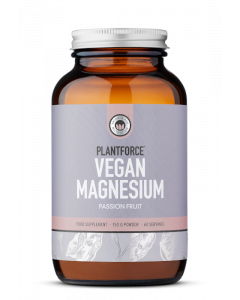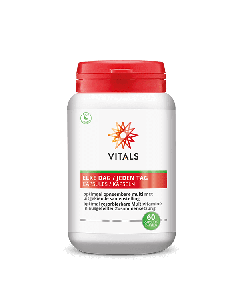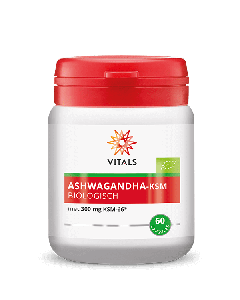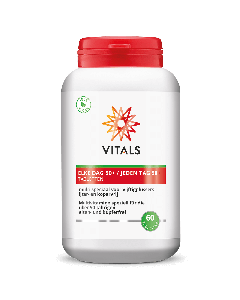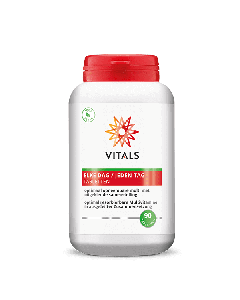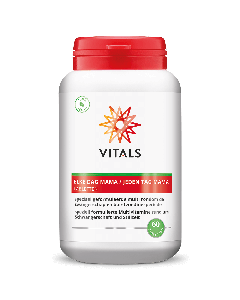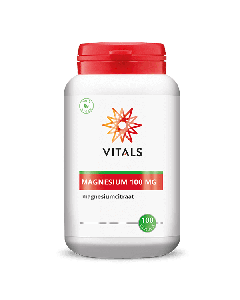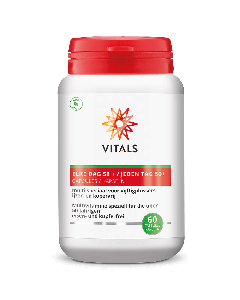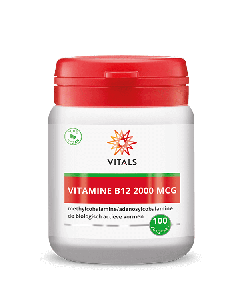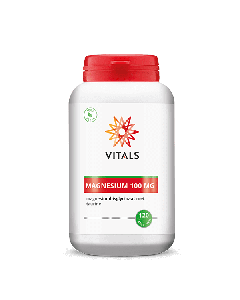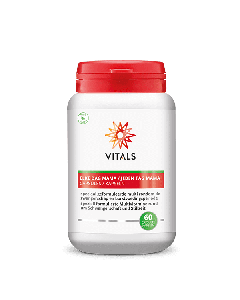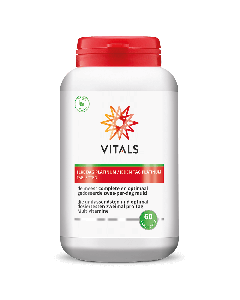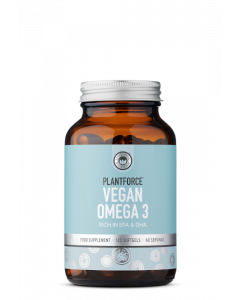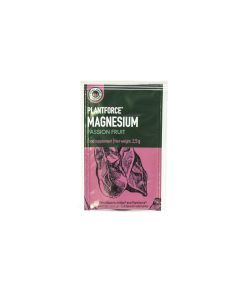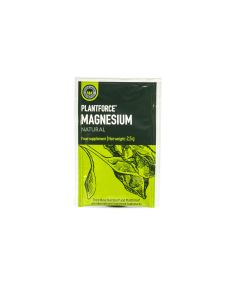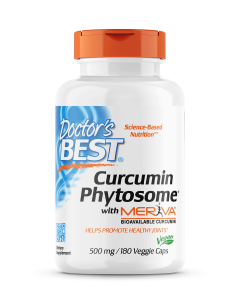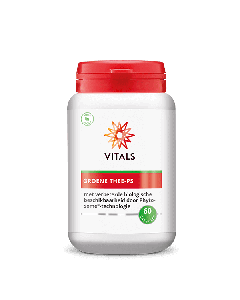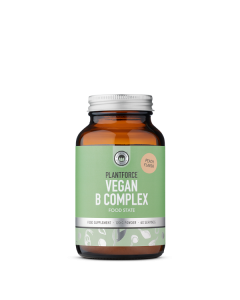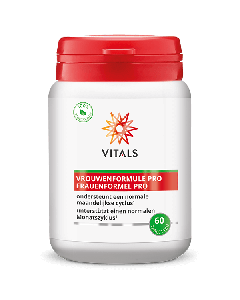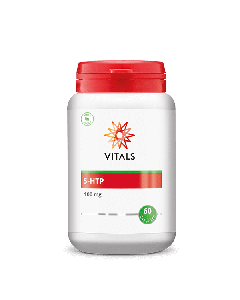What is Stress?
Stress is a feeling we all experience when we are challenged or overwhelmed. It is also a physical response that travels throughout the body. In the short-term stress can benefit us in many a situation, however, over the long-term it can negatively affect the body. The stress response (fight or flight) which is shown in the figure(s) below can be activated by various events depending on how they are perceived by the individual, below are some examples of the stress response:
- Physical: trembling, fast breathing, increased heart rate, increased blood pressure, sweating
- Emotional: you may experience fear, anger, nervousness
- Mental: tunnel vision - only focus on the event
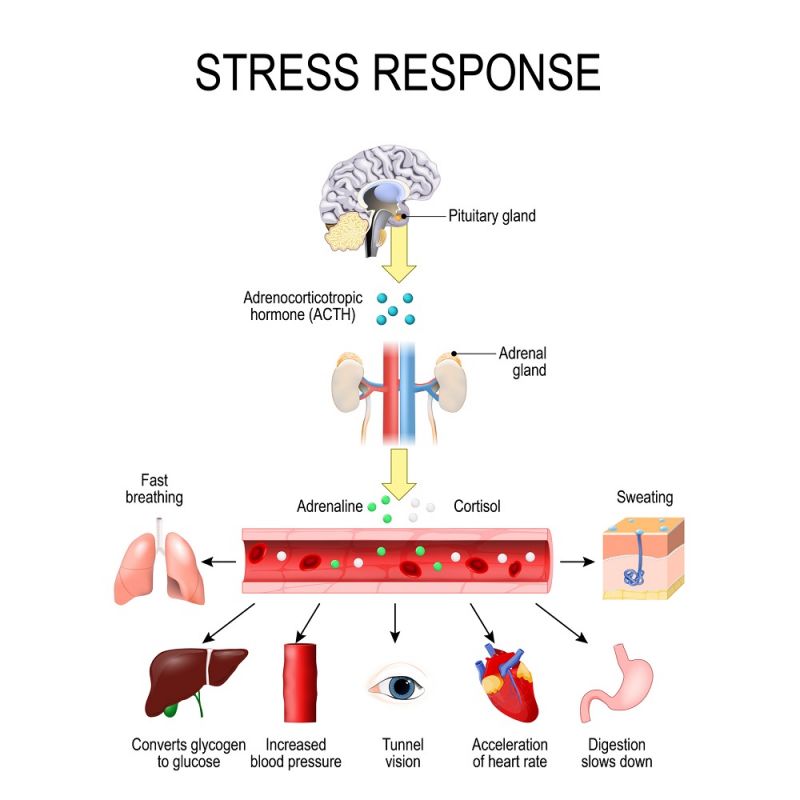
(Source: QueenslandHealth)
As you can see above many systems (circulatory, pulmonary, respiratory) are involved in the bodies response to stress. Long-term overstimulation of this system can lead to lethargy, fatigue and increased risk of a heart attack and stroke, just to name a few. It is no wonder these physical changes occur when we see the demand stress places on the body.
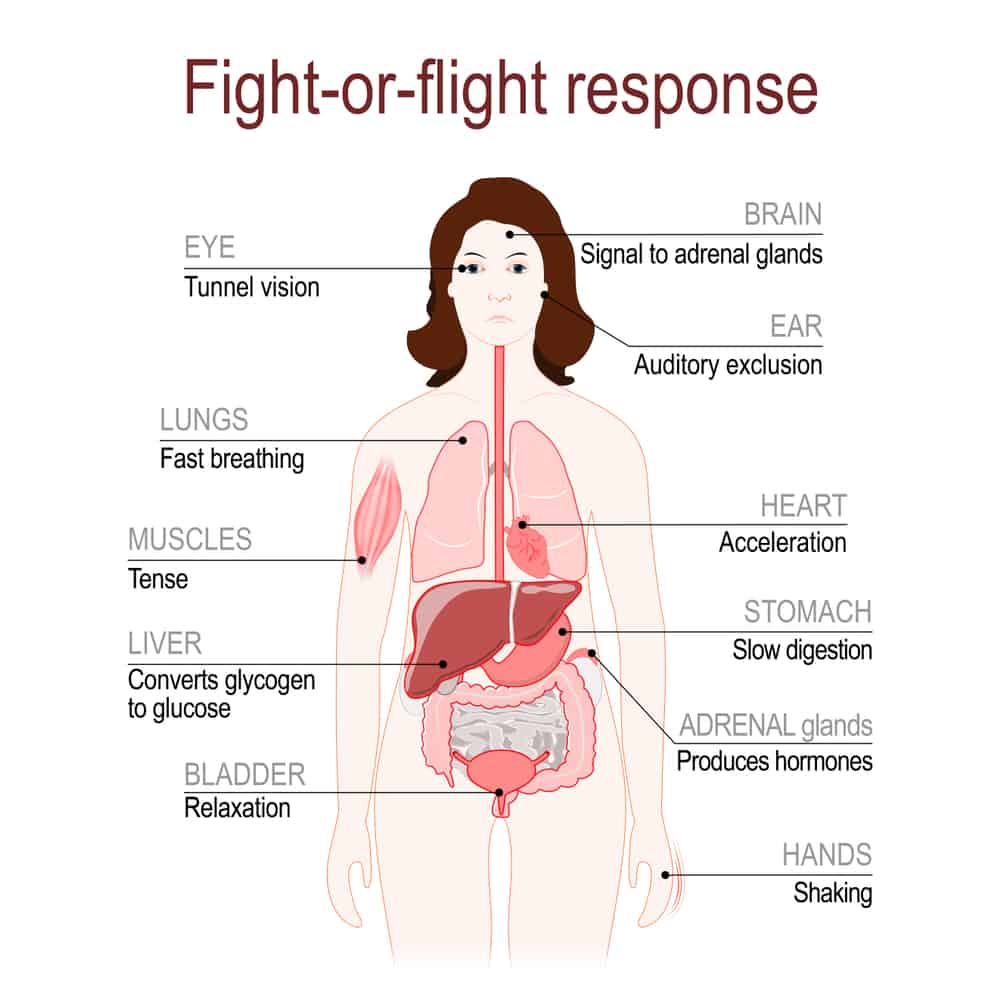
(Source: TheChiropractors)
As you can imagine it takes a pretty sophisticated system to detect, process and act on information like this all the time. No wonder there are negative effects of constant stress. It presents itself in many forms - for example, an athlete overtraining or an office worker overloaded with work (mental stress). In addition, an individual who does not overtrain, and has work-life under control can still experience chronic stress from other areas, such as their personal life. Next, we will discuss what can be done about this often overstimulated system.
Can Supplements help stress?
First off life is nearly always filled with some stress, but what matters to your brain and the entire body is how we respond to that stress. If you view those situations as something you can control and master, eventually you will not be stressed in that set of conditions again. Meaning you will perform better in the short-term, and stay healthy in the long run.
Like anything, we need to address the root cause. On this platform, we speak to a population and not the individual. Therefore, take the following pieces of information into your own individual context, as they may not apply to you. However, there are many this will apply to.
Adaptogens
Adaptogenic herbs work by desensitising the body to stress prior to it occurring.
Ashwagandha is a herb that has some evidence for anxiety and stress reduction. It has anti-anxiety properties and has also been shown to reduce cortisol levels by up to 28% in some populations (stress hormone). (Source: NCBI, NCBI, NCBI)
Rhodiola is another adaptogenic herb that has evidence of effectiveness with stress. It seems best suited to alleviate some of the symptoms (anxiety, fatigue) of stress and burnout. (Source: NCBI, NCBI, NCBI)
Want to learn more?
Here at Plent, we are different than most other supplement retailers out there. We are committed to consumer education and empowerment, brand transparency and quality assurance of all our own supplements. For this reason, we want all our customers to have a full and rounded understanding of the world of supplementation. If you would like to read more about Immune function from the experts, check out the links below:
- Video
- Generalized anxiety disorder (GAD) - causes, symptoms & treatment
- Emotion, Stress, and Health: Crash Course Psychology #26
- Written
- How to manage and reduce stress
- NHS - 10 stressbusters
- Audio
- The Head First Podcast: #7 Work-life Balance, Stress and Mental Wellbeing
- Niall Breslin: Where is my mind?
 Sunwarrior - Omega-3 | Vegan DHA & EPA - 60 softgelsShipped todaySpecial Price € 38.66 € 42.95(Starting at € 38,66 p/u)
Sunwarrior - Omega-3 | Vegan DHA & EPA - 60 softgelsShipped todaySpecial Price € 38.66 € 42.95(Starting at € 38,66 p/u)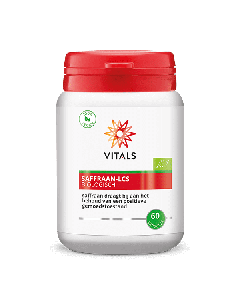 Vitals - Saffron Organic LCS - 60 CapsulesShipped todaySpecial Price € 27.96 € 34.95(Starting at € 32,15 p/u)
Vitals - Saffron Organic LCS - 60 CapsulesShipped todaySpecial Price € 27.96 € 34.95(Starting at € 32,15 p/u)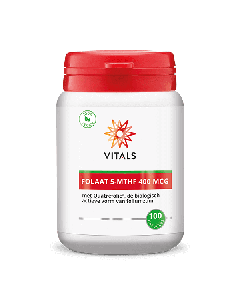 Vitals - Folate 5-MTHF - 100 capsules (400 mcg)Shipped todaySpecial Price € 15.96 € 19.95(Starting at € 15,96 p/u)
Vitals - Folate 5-MTHF - 100 capsules (400 mcg)Shipped todaySpecial Price € 15.96 € 19.95(Starting at € 15,96 p/u)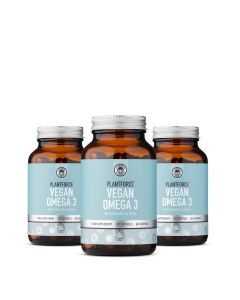 Plantforce - Vegan Omega-3 Algae Oil - 3x 120 softgels Bundle DealShipped today€ 94.37
Plantforce - Vegan Omega-3 Algae Oil - 3x 120 softgels Bundle DealShipped today€ 94.37



